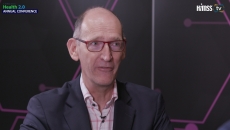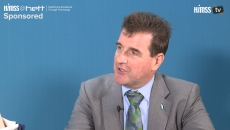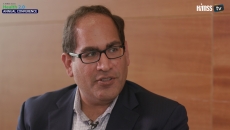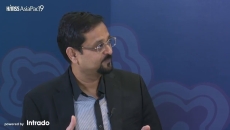Provider
Conversa Health provides a population health management platform that delivers better patient experience while alleviating provider burnout, says President and Chief Strategy Officer Murray Brozinsky.
The Mayo Clinic is partnering with Google Cloud to find the next breakthroughs that diagnose and treat complex and serious illness or conditions more effectively, says CIO Cris Ross.
Members of the HIMSS Media editorial team discuss the top takeways from the Connected Health Conference in Boston, including the changing role of healthcare payers, the challenges of behavior change, worrying digital health adoption stats and more.
David Hancock, healthcare executive advisor at InterSystems, discusses the need for interoperability when delivering healthcare to populations now and in the future.
Sara Vaezy, chief digital strategy officer at Providence St. Joseph Health, talks to MobiHealthNews about the changing digital landscape and ways to enable positive partnerships.
Efforts are underway to self-regulate drug price control with Malaysia's unique healthcare payment landscape, says Prince Court Medical Centre's Dr. Kuljit Singh.
ConsejoSano offers a patient engagement platform that targets culturally diverse populations to make healthcare more accessible to those affected by social determinants, says the organization's COO Vikram Bakhru.
Therapeutic VR's efficacy is established — time to tackle practical implementation, scaling, payment
At last week's Connected Health Conference, a panel of VR evangelists turned their eyes toward the bigger hurdles facing VR's potential for success within healthcare.
Six out of 10 responders are going to online resources before seeing a doctor.
CliniVantage co-founder and Managing Director Nilesh Jain provides insight into the ongoing trends in population health and chronic care management.






